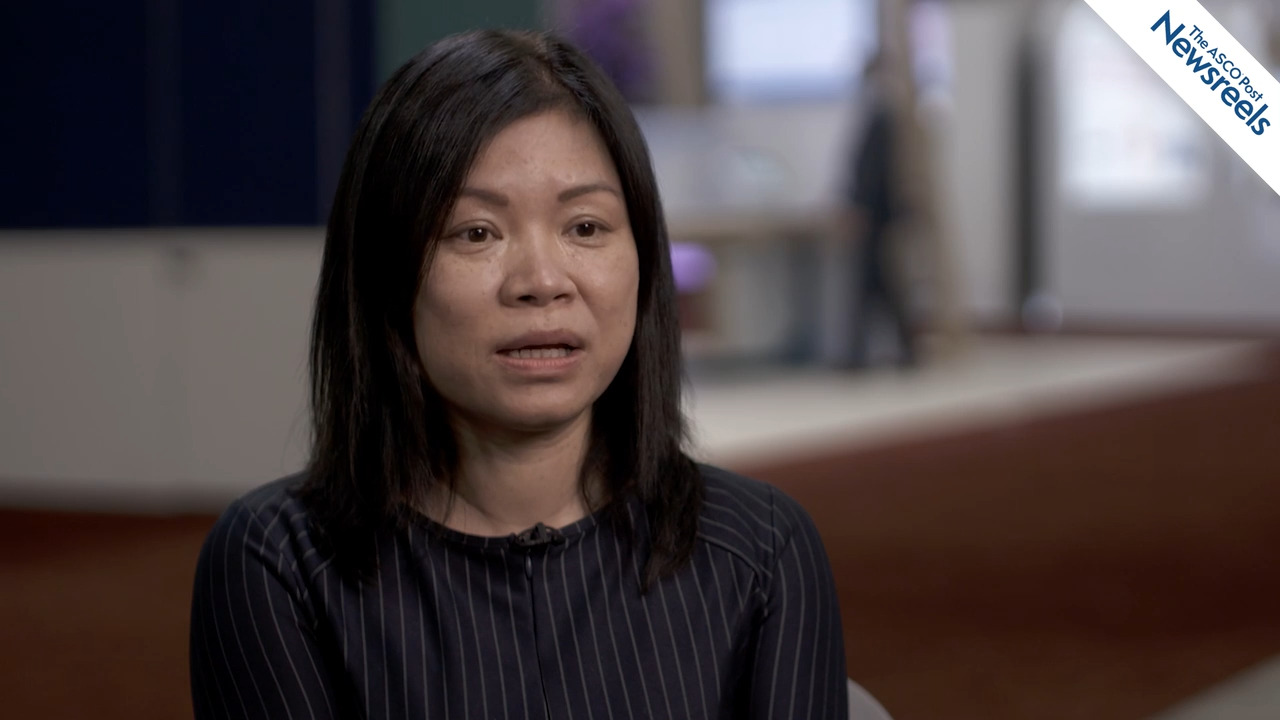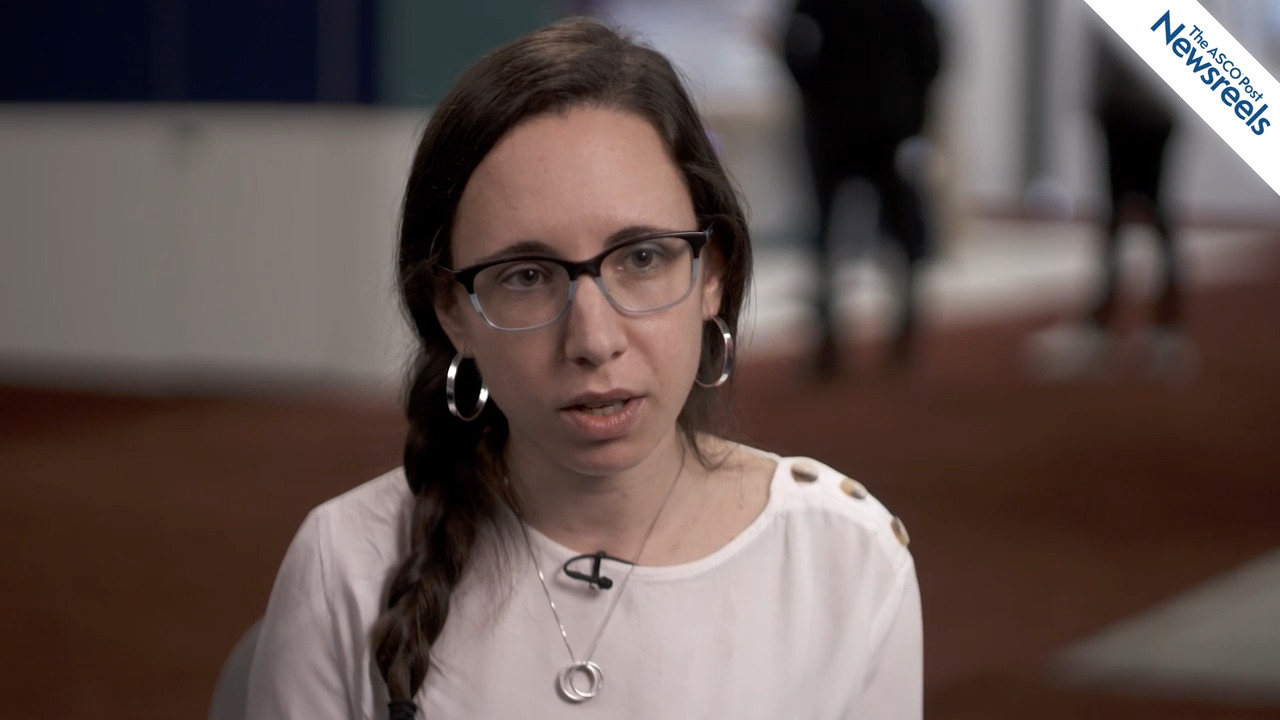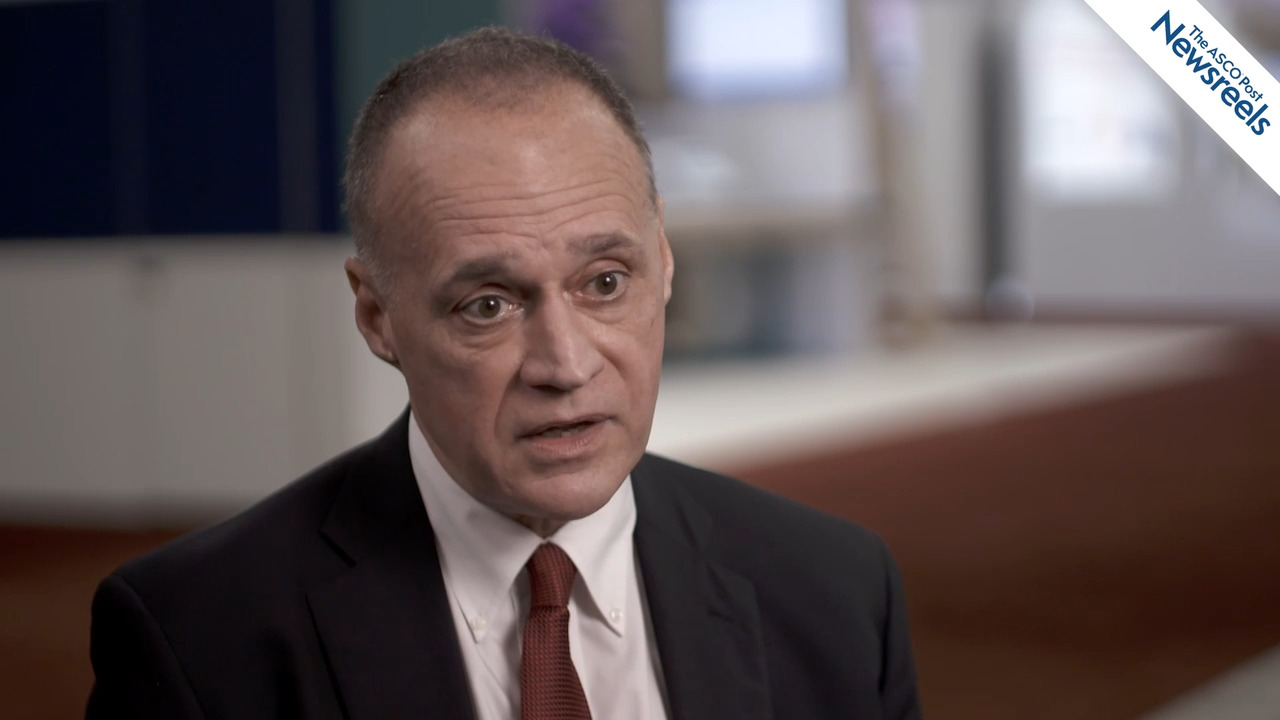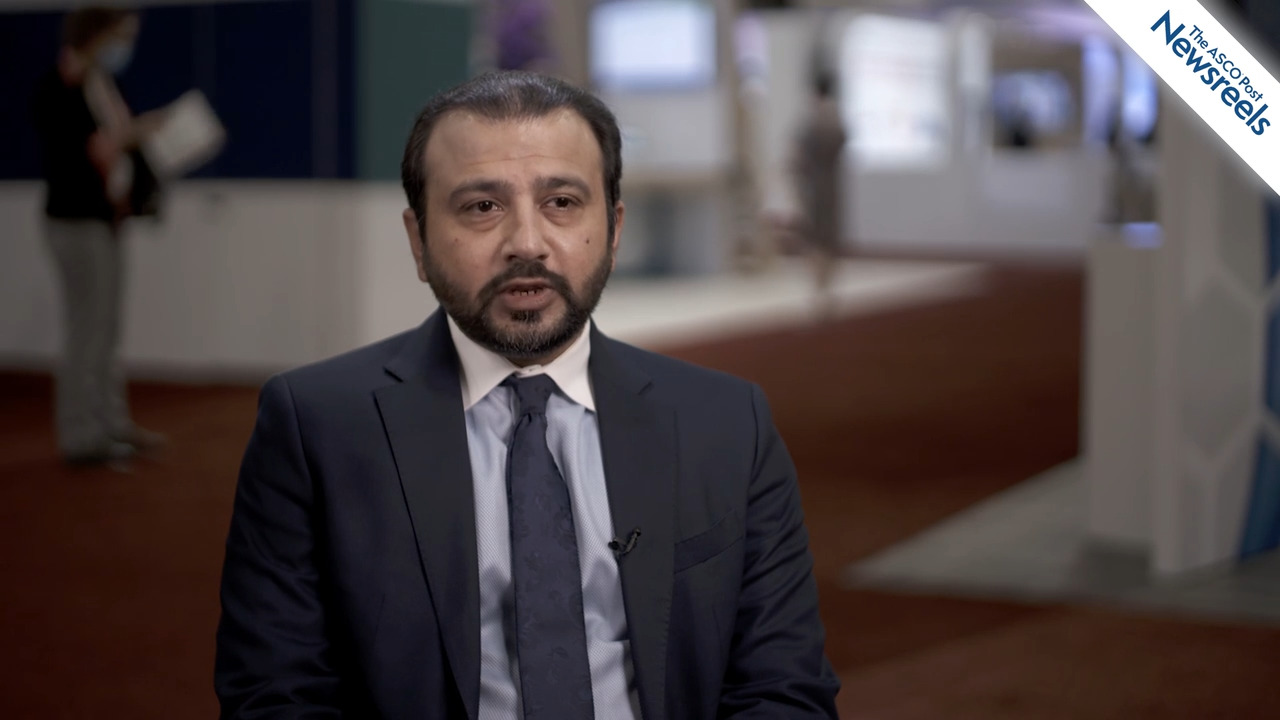Musa Yilmaz, MD, on FLT3-ITD–Mutated AML: Findings on Quizartinib With Decitabine and Venetoclax
2021 ASH Annual Meeting & Exposition
Musa Yilmaz, MD, of The University of Texas MD Anderson Cancer Center, discusses study results suggesting that quizartinib with decitabine and venetoclax is active in patients with FLT3-ITD–mutated acute myeloid leukemia and that RAS/MAPK mutations continue to drive primary and secondary resistance (Abstract 370).
The ASCO Post Staff
L. Elizabeth Budde, MD, PhD, of City of Hope, discusses phase I/II findings that showed mosunetuzumab monotherapy induces deep and durable remissions in patients with relapsed or refractory follicular lymphoma who have received two or more prior lines of treatment, including those with double-refractory disease. Because follicular lymphoma is associated with frequent relapses and decreasing progression-free intervals with successive lines of conventional therapy, these data are encouraging (Abstract 127).
The ASCO Post Staff
Daniel A. Ermann, MD, of the Huntsman Cancer Institute, University of Utah, discusses results from the largest retrospective study on outcomes utilizing radiotherapy in early-stage diffuse large B-cell lymphoma. Adding radiation to front-line multiagent chemotherapy was associated with a survival benefit for all patients with early-stage disease. An overall survival benefit was seen with the addition of radiation to front-line multiagent chemotherapy for patients with nodal involvement and those with specific extranodal involvement in the testes, thyroid, skin and soft tissue, and head and neck (Abstract 49).
The ASCO Post Staff
Alba Rodriguez-Meira, DPhil, of the University of Oxford, discusses a comprehensive analysis of the genetic, cellular, and molecular landscape of TP53-mediated transformation, providing insights into the evolution of chronic hematologic malignancies toward an aggressive acute leukemia. Because TP53 is the most commonly mutated gene in human cancer, these findings may well be of broad relevance (Abstract 3).
The ASCO Post Staff
Michael R. Bishop, MD, of the University of Chicago, discusses insights from findings of the phase III BELINDA study, which may inform the design of future CAR T-cell trials, as well as the use of second-line tisagenlecleucel therapy in patients with relapsed or refractory aggressive B-cell non-Hodgkin lymphoma (Abstract LBA-6).
The ASCO Post Staff
Talha Badar, MD, of the Mayo Clinic, discusses the near-universal poor outcomes for patients with TP53-mutated acute myeloid leukemia and the findings that show allogeneic stem cell transplantation appears to improve the long-term survival in a subset of these patients. Effective therapies may successfully bridge patients to transplant and prolong survival for those who are transplant-ineligible (Abstract 797).





